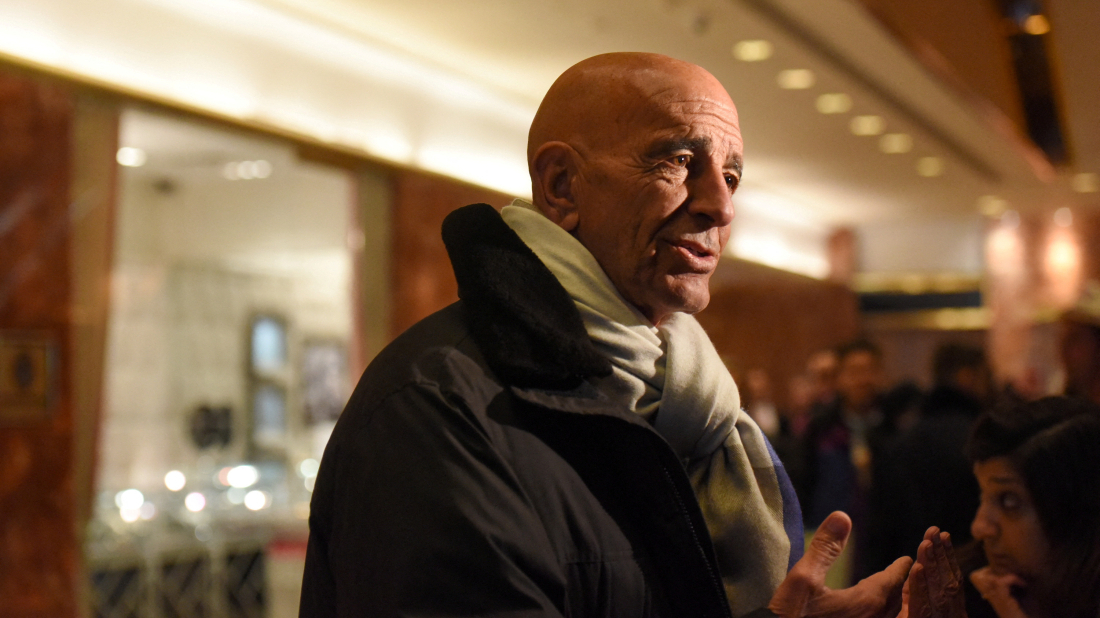What we know about Trump's Board of Peace
U.S. President Donald Trump’s 'Board of Peace' will hold its first leaders’ meeting on Thursday (19 February) in Washington, D.C., launching an in...

U.S. ambassador highlights Türkiye’s 'unique' role in Russia-Ukraine talks, regional dialogue - 'Türkiye has a traditional cooperation with both Russia and Ukraine which enables them to establish significant dialogue,’ says Tom Barrack.
U.S. Ambassador to Türkiye Tom Barrack has highlighted Türkiye’s “unique” role in the ongoing efforts to broker peace in the Russia-Ukraine war, praising the country’s active participation in talks held recently in Istanbul.
Speaking to Turkish broadcaster NTV on Monday, Barrack emphasized that Türkiye’s traditional cooperation with both Russia and Ukraine positions it as a key facilitator capable of establishing significant dialogue between the two sides. This unique diplomatic standing allows Türkiye to play a vital role amid the complex dynamics of the conflict.
While Türkiye is widely recognized as a key NATO ally, Barrack noted that its influence extends far beyond that role. Its regional presence is particularly evident in conflict zones such as Syria, as well as in managing the ongoing challenges posed by the Russia-Ukraine war. He also drew attention to the strong relationship between Turkish President Recep Tayyip Erdoğan and U.S. President Donald Trump, expressing his intention to further strengthen this partnership. However, Barrack cautioned that Trump’s patience with the protracted conflict in Ukraine is wearing thin, suggesting potential shifts in U.S. engagement.
Reflecting on U.S. policy in the region, Barrack observed that current approaches to Syria differ significantly from those pursued over the last century, many of which have failed to establish lasting stability. He traced much of the Middle East’s ongoing turmoil to historical Western interventions following World War I. He cited the Balfour Declaration, which aimed to establish a homeland for Jewish people, and the Sykes-Picot Agreement, which drew artificial borders through a region characterized by diverse tribes and religious groups.
Barrack remarked that while the Ottoman Empire had a functioning system that accommodated its complex social fabric, the imposition of artificial borders ignored this reality, sowing long-term discord. He attributed these externally imposed divisions largely to Western ambitions to control fossil fuel resources—a factor that continues to influence conflicts in the region today.
Regarding the future of the U.S. military presence in Syria, Barrack revealed that Washington has begun efforts to integrate the PKK/YPG—designated a terrorist organization by Türkiye and operating under the name Syrian Democratic Forces (SDF)—into the Syrian regime. He pointed out that the U.S. military presence in Syria is steadily declining, with the number of bases reduced from eight to five, then to three, and eventually expected to shrink to just one.
Currently, the SDF operates under the protection of the U.S. Central Command (CENTCOM), but Barrack warned that without strong, mutual cooperation, this support could diminish. He added that mounting pressure on all sides to reach an agreement means that without solid cooperation, the U.S. role in the region could gradually diminish.
In sum, Ambassador Barrack’s comments underscore Türkiye’s vital diplomatic and strategic role in the region, while highlighting evolving U.S. policies and the challenges that remain in achieving sustainable peace in Syria and beyond.
The drumbeats have finally faded at the Marquês de Sapucaí, bringing the competitive phase of the Rio Carnival 2026 to a dazzling close. Over two marathon nights of spectacle, the twelve elite schools of the "Special Group" transformed the Sambadrome into a riot of colour.
Peru’s Congress has voted to censure and remove José Enrique Jeri Ore from his posts as President of Congress and acting President of the Republic, just four months into his tenure, citing undisclosed meetings with Chinese businessmen and alleged hiring irregularities.
Start your day informed with AnewZ Morning Brief: here are the top news stories for the 17th of February, covering the latest developments you need to know.
France celebrated Olympic gold in the men’s biathlon relay in Anterselva on Tuesday (17 February), following a thrilling race marked by an electric atmosphere at the stadium.
Qarabağ FK are facing Newcastle United in the UEFA Champions League play-off round on Wednesday evening in Baku, in what will be the first UEFA competition meeting between the two clubs.
Meta CEO Mark Zuckerberg was pressed for answers in a Los Angeles courtroom as a youth social media addiction case probed how far Meta went in shaping young users’ behaviour on Wednesday.
U.S. President Donald Trump on Wednesday sought to highlight his outreach to Black Americans during a White House reception marking Black History Month, held months before November’s midterm elections.
Hungary has suspended diesel fuel deliveries to Ukraine with immediate effect and will not resume shipments until crude oil transit via the Druzhba pipeline is restored, said Peter Szijjarto, Hungarian Minister of Foreign Affairs and Trade.
A platoon of Swedish Air Force Rangers is training in Greenland as part of the ongoing “Arctic Endurance” exercise, according to Sweden’s military.
U.S.-mediated talks between Russia and Ukraine in Geneva ended after two days of negotiations that Ukrainian President Volodymyr Zelenskyy described as difficult, while signalling progress on the military track.
You can download the AnewZ application from Play Store and the App Store.

What is your opinion on this topic?
Leave the first comment